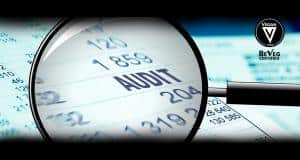BeVeg International vegan certification firm requires audits up to global food safety standards. BeVeg Vegan Certification: globally accredited vegan
Vegan claims without physical audits lack integrity, as you cannot hold the supply chain and manufacturing processes accountable with just a paperwork review.
PALM BEACH, FLORIDA, UNITED STATES, February 28, 2021 /EINPresswire.com/ — Vegan claims without audits are wishy washy and lack integrity. There is simply no way to hold the supply chain and factory manufacturing processes accountable to vegan ideals with just a paperwork review process. Audits are needed to ensure vegan claim integrity and supply chain accountability. It ensures proper chain of custody, training, and traceability controls are in place to keep the vegan claims honest.
Auditing the supply chain, ingredients, storage, preparation, purchasing controls, equipment, hygiene, and educating staff in all roles associated with these stages ensures food is safe for animal allergen sufferers and untainted for vegans (and other vegetarian, faith-based related diets which avoid animal products). Auditing also reduces the risk of animal contamination, which is the cause of many zoonotic diseases and product recalls. Auditing moves the needle for animal lovers who wish to affect the supply chain and keep the industry accountable to conscious compassionate consumerism.
“It’s not just about the final BeVeg certified vegan finished product. It’s about keeping the entire supply chain accountable and re-sourcing ingredients as necessary to keep and put pressure on those lower on the supply chain to also consider certification for cruelty-free efforts. Much of the problem is innocent ignorance in the general population of allergies, vegans and even food safety. It is not just common sense, it is not taught in schools,” says Heather Landex, BeVeg Chief Compliance Advisor & Food Safety Auditor.
Auditing keeps businesses honest. It ensures businesses care and maintain a commitment to vegan standards. It has policies and procedures in place to ensure they cannot cheat. It forces them to become educated on what vegan is so the concept is respected, just like kosher, gluten-free, and non-gmo.
“Unfortunately, the nature of the industry causes high staff turnover on the factory level. That means standards slip with a change of staff or a weakness in vegan training standards. The lack of awareness means there is also a low demand for guarantees regarding contamination. That is why standards must be in place and penned into operating procedures,” says Carissa Kranz, BeVeg CEO, attorney founder and vegan from birth. “A vegan trademark means nothing without accredited standards.”
“BeVeg has a global awareness training program for auditors and factories. This is essential to ensure education and respect at the factory or facility level. Let’s face it: most facilities are shared and there is plenty of cross-contamination. All auditors know this. The consumer is very much unaware of what we see during our audits,” says Landex. “That is why vegan certification cannot be considered real unless there is a facility audit that requires vegan education and vegan controls in place as standard protocol.”
The BeVeg vegan standard requires traceability controls, food defense, and separation of vegan products from animal products during the packaging, mixing, un-packaging, storage, and production to ensure no animal contamination or residue. “This is not just about being cruelty-free, this is about food safety, which is mainstream. The world needs to care, especially during and after a pandemic,” says attorney Kranz.
Clear vegan labelling on products and clear designation of vegan product storage, equipment, utensils with specific protocols surrounding PPE (protective clothing: gloves, aprons etc), procedures (such use of color-coded chopping boards), excellent communication (from internal audits to staff on floor to supervisors), understanding of training by staff are all standards that must be checked and assessed in an audit.
“While an audit is a snap-shot, there are tell-tale signs when an element of the system is not working or broken. Audits also lift standards as it motivates a “have to” rather than “should do” attitude, says Landex.
"Vegan Certification standards with compulsory audits hold businesses accountable to a higher standard of food safety and cleanliness, and unify vegan claim expectations," says attorney Kranz. "The bottom line: vegan claims demand respect when quality management systems are forced to pen vegan awareness and controls into their other accredited and audited procedures."
In the end, it’s all about consumer demand. As the consumer gets educated on how vegan is not respected in the supply chain, Kranz hopes the supply chain will become accountable. "That’s their end user and they do not want to lose brand trust or loyalty as the consumer gets a glimpse into what’s really happening behind closed doors,” says attorney Kranz.
BeVeg International is an ISO 17065 accredited vegan standard that was accredited by the National Accreditation Center as a Conformity Assessment Program drafted in accordance with ISO 17067. The BeVeg vegan standard is being adopted by global auditing bodies who are already carrying out other food safety and quality management audits. All auditors must be trained and considered competent on the BeVeg vegan technical standard. If you have a vegan product/service you wish to get officially certified vegan, you can apply at www.BeVeg.com and an auditor or global certification body will be assigned to your file.
BeVeg Law Firm
BeVeg Int'l Vegan Cert
+1 866-529-1114
email us here
Visit us on social media:
Facebook
Twitter
LinkedIn
![]()

